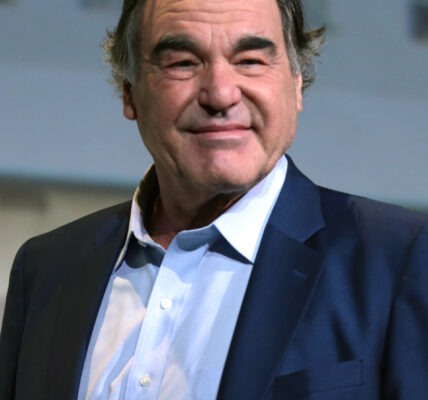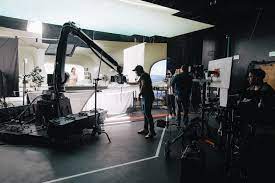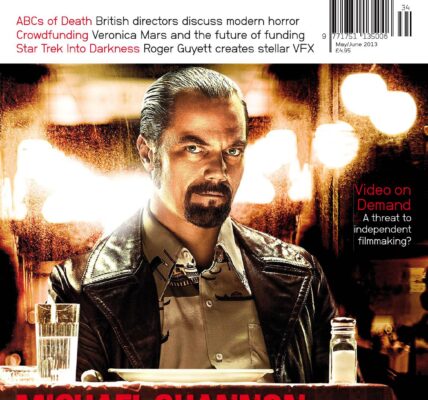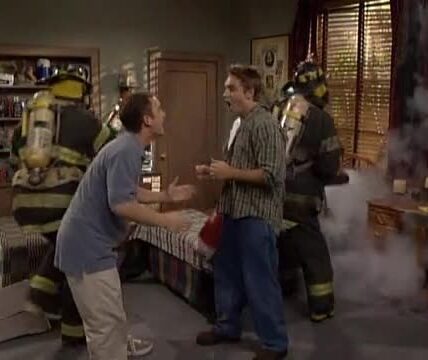Director – Jim Loach
The Family Business
As his debut feature Oranges and Sunshine comes to UK cinemas, director Jim Loach explains why the fact that his father is a household name is both an inspiration and a source of added pressure…
Making his feature debut with Oranges and Sunshine, director Jim Loach is bracing himself. As the son of Ken Loach—the celebrated British filmmaker behind Kes, Sweet Sixteen and My Name is Joe, to name but three—he knows his film will be compared, contrasted and criticised in light of his father’s body of work. “I know it’s going to happen and it’s inevitable,” he sighs. “Funnily enough, in terms of the material we go for, we probably would be slightly different. But it’s totally inevitable. So I have to get on with it.”
In truth, given the real-life plot of Oranges… it sounds just the sort of story Loach’s father might gravitate towards. Emily Watson plays Margaret Humphreys, a Nottingham-based social worker who in 1986 discovered that hundreds of children were shipped off to Australia by the British government three decades earlier. While many of these kids were living in care homes in the UK, most were not orphans, and were separated permanently from their families, put into Catholic institutions in Australia and often subjected to hard labour.
Adapted from Humphrey’s book Empty Cradles by Rona Munro, who previously scripted his father’s harrowing 1994 film Ladybird Ladybird, Loach was on the verge of shooting when both the governments of Britain and Australia issued an official apology to all the former child migrants, in late 2009. “The timing of it took us all by surprise,” he says. “Only a few weeks before, it seemed like an apology was a very long way away.” Loach was in Nottingham with Humphreys when he heard the news. “It was a very heightened, emotional time. Margaret was pretty overwhelmed, because it was such a huge moment. It was something she’d worked for, for 23 years.”
Loach first met Humphreys back in 2003, after reading her book and deciding he wanted to bring it to the screen. “She was very cautious,” he recalls. “She wanted to be convinced of what a film could do, and what sort of film it would be. She’s quite a normal, private person. So to have this bloke coming up from London, getting into quite personal areas, was quite difficult for her, and I can understand why.” As he states, he and Munro did not want to make a ‘campaigning film’, but a drama about a woman who devoted her life to reuniting separated families. “I think Margaret’s main concern was that it couldn’t just wallow in misery,” he says.
It’s a frequent criticism levied at his father’s films, yet the 41-year-old Loach studiously ensures that Oranges… has a more upbeat feel (despite the scare tactics Humphreys faces when she goes to Australia to continue her investigations). Still, did he bring his father into the postproduction? “Yeah, he popped into the cutting room to give me a few tips! We talk every day, so it’s not really a big deal. It’s important to be able to show it and have someone with a fresh eye to come in and see it.” Was he nervous at showing his father? He shakes his head. “No. I wasn’t nervous to show my dad.”
Raised in Bath, Loach testifies that he had a normal childhood— “whatever that is”—and didn’t spend a great deal of time on his father’s sets. “When I was much younger, I definitely didn’t want to make films. I think it was because I was determined to do the opposite of what my parents did. At the time, I wanted to be a journalist. I wanted to be like John Pilger, he was my hero.” So what happened? “It’s difficult to explain, to be honest. The pull was irresistible. That’s the only way I can describe it. And I think fundamentally I always did want to make films, but I denied it in myself.”
Ironically, Loach mirrored his father, who spent his early years in television, after he joined Granada following a stint studying philosophy at university. Working on World in Action, he began to direct episodes of the hard-hitting news show before moving onto Britain’s longest-running soap, Coronation Street, in 2000. “A lot of the older [cast] used to look at me like I should make them a cup of a tea and then bugger off! It was a completely surreal experience to be honest. I’d just stand there thinking, ‘What on earth am I doing here, in the Rovers Return? How has this happened? And what on earth am I going to say to them?’”
On the show for 10 months, Loach left with the intention of starting a career in feature films—not easy given his family background. “Really, it’s a royal pain in the arse to be honest a lot of the time!” he says of the shadow his father has unintentionally cast over his career. “But I’m really, really close to my dad—and my mum—and we talk all the time. There were definitely times when I felt like it was too difficult to deal with. But now I just do what I want to do. The problem for me was, obviously you don’t start from a clean slate, so you just have to let that notion go, and accept there will be a perception, and get on with it, and do it anyway.”
In the end, Loach cut his teeth on all manner of shows, from Shameless to Holby City, and Footballer’s Wives to Bad Girls, before he finally got Oranges… off the ground. But unlike his father— whose films, bar Carla’s Song and Bread and Roses, are always based in Britain—Loach relished the chance to shoot abroad, in Adelaide. “I think it’s more freeing to me personally.” He hopes to make another film, this time fictional, about a boy who journeys across the world to find out who his father is—a story that sprung out of the ashes of Oranges. “It’s about how well you know your parents,” he says. Given his own background, it seems the perfect story for him to tell next.
Oranges and Sunshine opens on April 1
…












